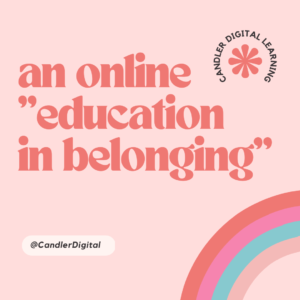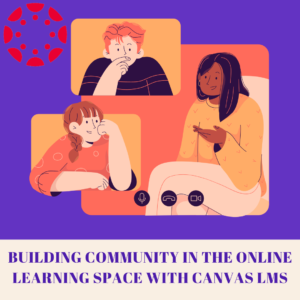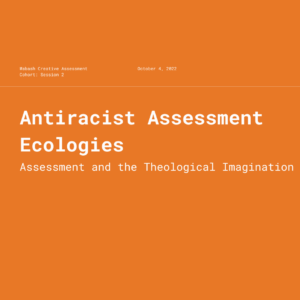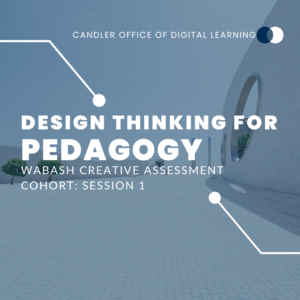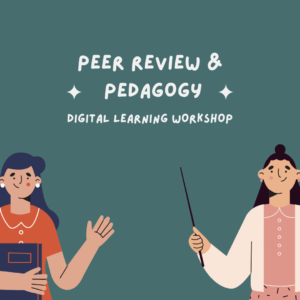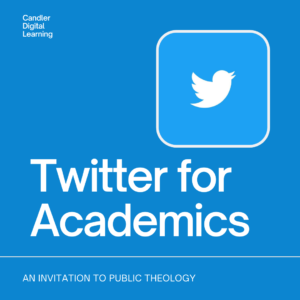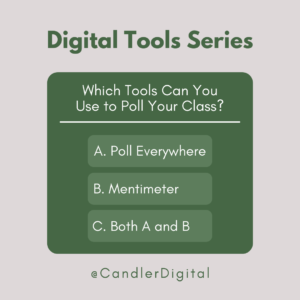Author's posts
An Online Education in Belonging
In After Whiteness: An Education in Belonging, Willie James Jennings explores the implications of white supremacy and racial identity on American Christianity and education. He argues that white supremacy has profoundly impacted American society and religion and created a culture of segregation and exclusion. For Jennings, American Christianity must embrace a new theology of belonging …
Building Community in the Online Learning Environment Using Canvas LMS
As online learning becomes more and more accessible, so does the possibility of a more isolated educational experience. Building community, especially in theological education, is essential to student learning. It is important that the online environment be just as welcoming, hospitable, and supportive for online students as it is in the in-person classroom. A well-designed …
Mapping Out Our Assessment Ecologies as a Theological Practice
By: Ryan Runager and Dr. Sarah Bogue Often, for many classes, getting a particular grade or simply completing the assignment is more important than the learning of class material. Asao B. Inoue, Professor of Rhetoric and Composition at Arizona State University, writes: Classroom writing assessment is more important than pedagogy because it always trumps what …
Using Design Thinking in the Theological Classroom
What does a business concept have to do with teaching theology? Tom Kelly writes that a “Hands-on, user-centric approach to problem solving can lead to innovation, and innovation can lead to differentiation and competitive advantage.” As theological educators, our work is not inclined toward competitive advantage. Our work is to be present, embodied, and full …
Adding VoiceThread to Canvas LMS
VoiceThread LTI is a Learning Management System (LMS) integration that operates inside of Canvas. Now, what does this mean? As an instructor at Emory University, you are able to use VoiceThread in your classes without ever having to leave Canvas! Adding VoiceThread to Your Canvas Course You can add VoiceThread to your modules as an …
6 Benefits to Peer Review in Theological Education
Simply put, peer review assignments enable students to provide feedback to each other. They are another tool to put in your pedagogical tool belt. There is a lot of research on peer review in the classroom. We will cover some best practices later in this article. The following Benefits to Peer Review we present here …
Twitter for Academics: An Invitation to Public Theology
I recently spoke with a colleague who was curious about academic twitter (#AcademicTwitter). She mentioned how it has become a repository of resources. Everything from book launches to news articles – it’s so valuable. Our conversation shifted, however, once we began talking about Twitter best practices and how to use it. For many academics, Twitter …
More Discussion, Less Bored: Alternatives to Discussion Boards
For many classes, Discussion Boards serve as the primary means of assessing a student’s participation and preparation for class. Did they do the reading? Are they paying attention in class? Many faculty who teach online use discussion boards as a way to continue the conversations of the class outside of the classroom. This article is …
Interested in Becoming a Tech Producer?
Job Description The role of a tech producer is to be the facilitator of the online classroom on behalf of the faculty member. Under the supervision of the Instruction Content Developer in the Office of Digital Learning, Tech Producers will assist in a range of technical and pedagogical tasks including Zoom support for teaching faculty and …
4 Creative Uses for Polling in the Classroom
If the pandemic has shown us anything about education, it is that learning can often become a passive experience. This is true for both face-to-face and online instruction. Students will get into a “TV watching” mode and not actively engage in discussion. Now, this is not intentional and it is not something to assign blame. …
- 1
- 2
